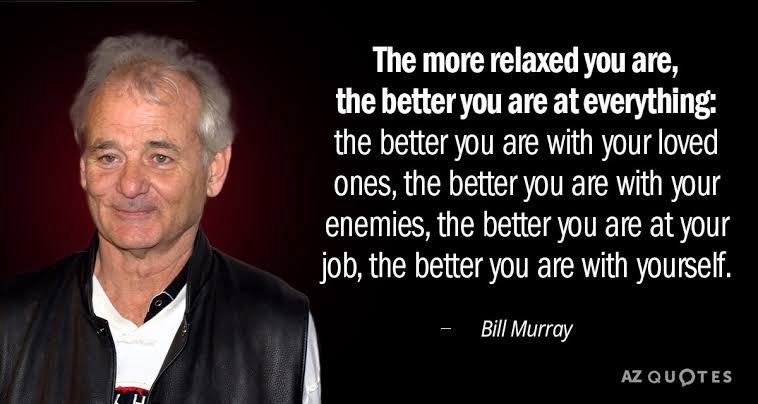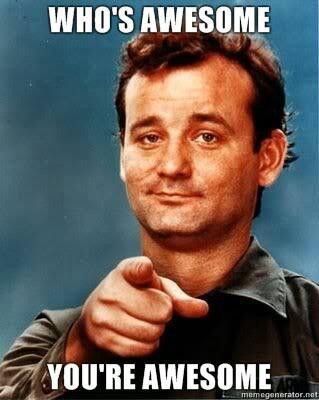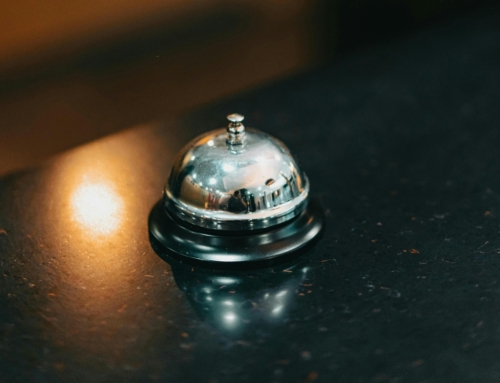Instead of working, I was curled into a ball on the ground. My morning plans were interrupted by pain, and the more I tried to work, the worse my pain became.
So I stopped working for the day. I made myself a cup of tea, and went into my back yard, to ask myself: can I continue to work, or do I need to stop?
I’ve always prided myself on being a highly productive person. Ten years ago I read Getting Things Done by David Allen, and ever since, I have been able to produce at high capacity.
The secret to my productivity was stress.
When beginning a work session, I would habitually drink a lot of coffee, and put on headphones with loud electronic music. The agitation propelled me onto the next task, and the next task, in my highly-scheduled, tightly productive day.
It worked, for a long time… until it didn’t.
For five weeks last year, I was bedridden. Unable to work, to write, or even to think. I closed my business, told my clients I was unavailable (indefinitely), and my illness - a chronic autoimmune disorder that I had not been taking seriously enough - forced me to re-evaluate how I spent my time working.
Stress, it turns out, was a trigger for my condition. The more time I spent in stress, the worse my symptoms became.
After spending a decade of my career working alongside stress, how could I switch to working in a state of relaxation?
The answer, oddly enough, came from Bill Murray:
“Someone told me some secrets early on about living. You have to remind yourself that you can do the very best you can when you’re very, very relaxed. If I had to go to work and say, ‘No matter what my condition or what my mood is, no matter how I feel about what’s going on in my life, if I can relax myself and enjoy what I’m doing and have fun with it, then I can do my job really well.’ And it’s changed my life, learning that. And it’s made me better at what I do. I’m not the greatest or anything. But I really enjoy what I do.” - Bill Murray
Nowadays, when I am in the midst of working, if I notice my shoulders tense, or my breathing shallow, I channel my inner Bill Murray. I ask myself: how would Bill Murray handle this moment?
It’s been a helpful trick, but it’s battling against some deep-seated conditioning.
On To The Next Task
When you hear a bell in a classroom, everyone gets up and goes into a different room at the same time. Do you know why?
Because Horace Mann went to Prussia in 1843, and delivered a report to the Massachusetts Board of Education, describing the benefits of their methods.
The reason so many of us heard a bell growing up, signaling a time to transition to a new classroom (with a new teacher and a new subject), was because the Prussian educational system was particularly good at training factory workers.
When you work in a factory, you will get burned out if you do the same repetitive task for too long. But if you transition from task to task, you can get more work out of a worker, over longer hours.
The way a factory transitions its workers is with a bell.
When the bell rings, everyone gets up and goes somewhere else, to do something different. The change of environment invigorates the worker, and leads to a burst of productivity over the next hour.
Programmed For Productivity
This was the training I had growing up - to get things done, you work like you were working in a factory.
So I schedule my days in 15-minute increments, and move efficiently from task to task.
As a Solopreneur in the gig economy, running my own business working from home, I find this style of work training is not only inadequate to handle the challenges I face, it is actively harmful to me.
My first dozen jobs were in the service industry, giving other people nourishment in restaurants, cafes and bars. For those jobs, working nights and weekends is normal, and it’s very common to work double shifts of 12 hours or more.
In the service industry, when you work for tips, a strong work ethic is required. You work hard and you play hard. If you schedule your time well enough, you can handle this difficult level of production. Many can even simultaneously handle a full load of college credits, as I (and many others) proved semester after semester.
But now that I work for myself, I’m the only one in charge of my timesheet. I’m the boss that decides when things get done, and when things get postponed. My highly productive work ethic is actively harmful to me.
Working too hard, with too much stress, can kill you over time.

Photo courtesy of AZ Quotes
Starting With Stress
For the last decade, while running my digital marketing agency from various countries around the globe, I started my workday with something stimulating. Drinking a cup of coffee. Going for a run. Artificially revving up my energy.
This constant state of stress has made me a highly productive person. It has also caused me health issues that have left me incapacitated for weeks on end.
I developed an autoimmune disorder, the kind where my body’s immune system starts attacking my internal organs, whenever my cortisol levels spike. Stress is literally tearing me apart from the inside.
Thankfully, my illness is teaching me lessons I needed to learn. I’ve had to learn how to work in a state of relaxation, instead of in a state of stress.
While I was a multitasking productivity nerd, I thought that starting with stress would give me momentum, and I could begin my work session and accelerate.
But it turns out, I don’t do my best work when I’m stressed. I do my best work when I’m relaxed.
Scheduling Downtime
I’ve begun positioning ‘recovery blocks’ before my ‘focus blocks.’ These terms are from Charlie Gilkey’s recent book, Start Finishing, where he provides many useful frameworks for thinking about your work (and your relationship to your work.)
I found his tools to be really practical to adapt to my depleted work potential. By scheduling downtime in between uptime, my energy levels can flow between modest stress and relaxation, and keep my autoimmune symptoms low. To do this, I have to protect my recovery blocks, as if they were important as client hours (because they are).
There have been many times in my career where I wanted to skip the gym, because I had a small list of minor things unaccomplished. Anytime I skipped the gym, I might get more done that afternoon, but my overall productivity for the week would be lower.
After trial and error, I learned the importance of maintaining gym time, and kept a regularly scheduled time to sharpen my saw. The return on investment on this time taken for myself is indisputable.
Habituate Personal Power-Ups
- Schedule your uptime in blocks of 60–90 minutes
- Schedule downtime blocks between them, 30–45 minutes
- Create a list of Personal Power-Ups
- When time comes to recharge, select 1 Power-Up from the list.
Ideally, if you schedule 45 minutes for a Recovery Block, you spend all that time on recovery. I find that it is more difficult to commit to spending all of my scheduled time on myself, but I can always commit to doing 1 item on my Power-Up List.
I still feel guilty in taking time for recovery, as if it is an indulgence, and I am selfish in taking time away from my business. So I make a small commitment, and after succeeding in this commitment, I often keep the momentum going to do another Personal Power-Up, and maybe another.
Trick yourself, if necessary.
Many of us were indoctrinated in work ethics by attending schools designed for industrialization. Our minds were literally configured to the conveniences of a foreman’s schedule.

Overcoming this programming can be done, but it requires a clear understanding of how you were trained, and where you are willing to be uncomfortable to change things for the better.
The next time you find yourself trying to work harder, challenge that feeling.
Ask yourself if you can work smarter, in relaxation, instead.
Bill Murray has 92 acting credits to his name (so far), he’s been nominated for an Oscar, and he once broke Robert DeNiro’s nose. His relaxed mindset has not only allowed his achievements, it has encouraged them.






Leave A Comment